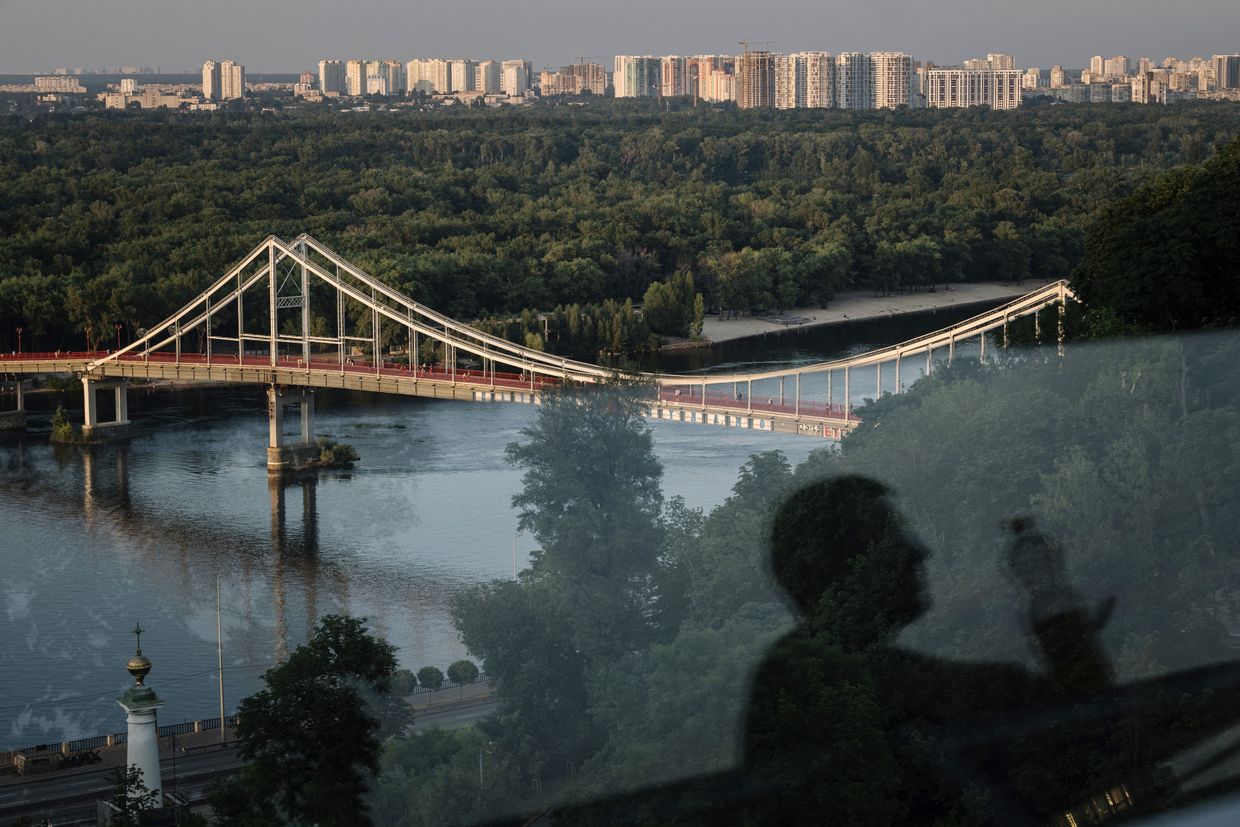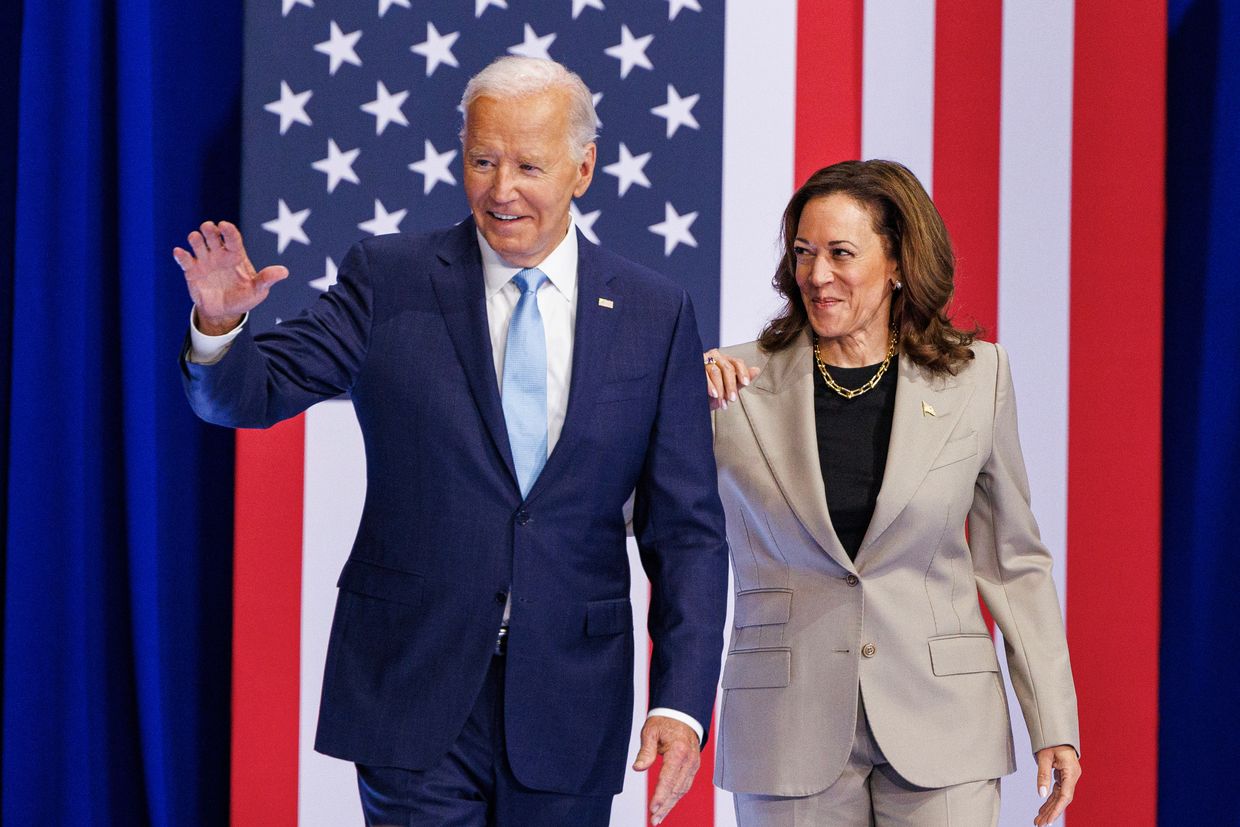Opinion: Putin’s red carpet in Mongolia was a betrayal of justice and accountability

Russian President Vladimir Putin (L) and Mongolian President Ukhnaagiin Khurelsukh (R) meet in Ulaanbaatar, Mongolia, on Sep. 3, 2024. (Kremlin Press Office/Anadolu via Getty Images)

Alice Autin
Officer at Human Rights Watch
Mongolia’s president welcomed Russian President Vladimir Putin in the capital of Ulaanbaatar on Sept. 3 for an official ceremony commemorating a Soviet-Mongolian military victory during World War II.
While Putin has attended such ceremonies regularly over the years, the key difference this time was that he traveled to an International Criminal Court (ICC) member country as a fugitive of the ICC. It was the first time Putin visited an ICC member since the court made his arrest warrant public in March 2023.
As an ICC member, Mongolia was obligated to arrest him, but it did not.
There’s no question about what Mongolia was required to do. Putin should never have been invited in the first place, and as soon as he set foot on Mongolian soil, he should have been arrested – not met with a red carpet.
The Mongolian government failed the victims of grave international crimes in Ukraine. It also failed its own commitment as an ICC member to be part of the global community supporting victims’ access to justice through the court and its broader system of accountability. The principle that no one, no matter how powerful, is above the law is a cornerstone of that system.
The Mongolian government failed the victims of grave international crimes in Ukraine.
The ICC cannot, on its own, make this ideal a reality. The court relies on member countries to cooperate and enforce its arrest warrants. Last year, Putin was expected to attend a BRICS summit in South Africa. But along with pressure from civil society groups, a legal case helped ensure that South Africa’s obligation to execute the ICC arrest warrant would be upheld domestically. “By mutual agreement,” the South African president announced, Putin’s visit was ultimately canceled.
To be sure, arresting a suspect is one of the most difficult challenges in delivering international justice. It is a long road, but with persistence, principled support for justice, and, crucially, political will, progress is possible. South Africa’s example shows that the world of ICC fugitives, no matter how powerful, can shrink significantly.

It took 12 years to arrest Radovan Karadžić, but he was ultimately convicted in 2016 for his crimes in Bosnia by the International Criminal Tribunal for the former Yugoslavia (ICTY). The European Union conditioned closer ties with Serbia, where Karadžić was hiding, on its full cooperation with the ICTY, including the arrest and surrender of fugitives. This example should remind countries that international justice only works when they support its enforcement.
Looking ahead, every step will matter to ensure that future arrests materialize. The ICC treaty provides for enforcement proceedings against non-cooperating states. It remains to be seen whether these will be applied to Mongolia. In the meantime, there are already consequences. The Mongolian government’s inaction has been widely condemned, with states and regional organizations like the EU speaking out in support of the court.
All other ICC members should reinforce these efforts and strongly condemn Mongolia for failing to meet its legal obligations. This is key to upholding the authority of the court’s warrants and ensuring ICC suspects are arrested in the long term.
Other ICC members have the responsibility and tools to ensure the Mongolia visit remains just a dent in cooperation and support for the court. Victims, their families, and survivors need to know they can rely on the ICC to pursue justice.
At the same time, Ukraine is taking important steps to advance the promise of justice. After years of campaigning by national and international human rights groups, in late August, Ukraine’s parliament passed a law to ratify the ICC treaty. The country has never been closer to becoming a full member of the court, whose investigation into grave crimes committed in Ukraine has already yielded six significant arrest warrants as the fighting continues.
However, Ukraine’s newly enacted law includes limitations on the ICC’s mandate that, if acted on, could shield war criminals from justice. Ukraine should support the court and its work without reservations. Only a strong and full commitment to the ICC will show the principled approach to justice that Ukraine and the world need.
Putin’s trip to Mongolia is an important reminder that there is still much to do to end impunity for the most serious crimes. Today, tomorrow, every day, it takes creative, principled, and sometimes courageous action by ICC members and other supportive states to uphold justice, the court’s work, and its decisions.
Editor’s Note: The opinions expressed in the op-ed section are those of the authors and do not purport to reflect the views of the Kyiv Independent.











